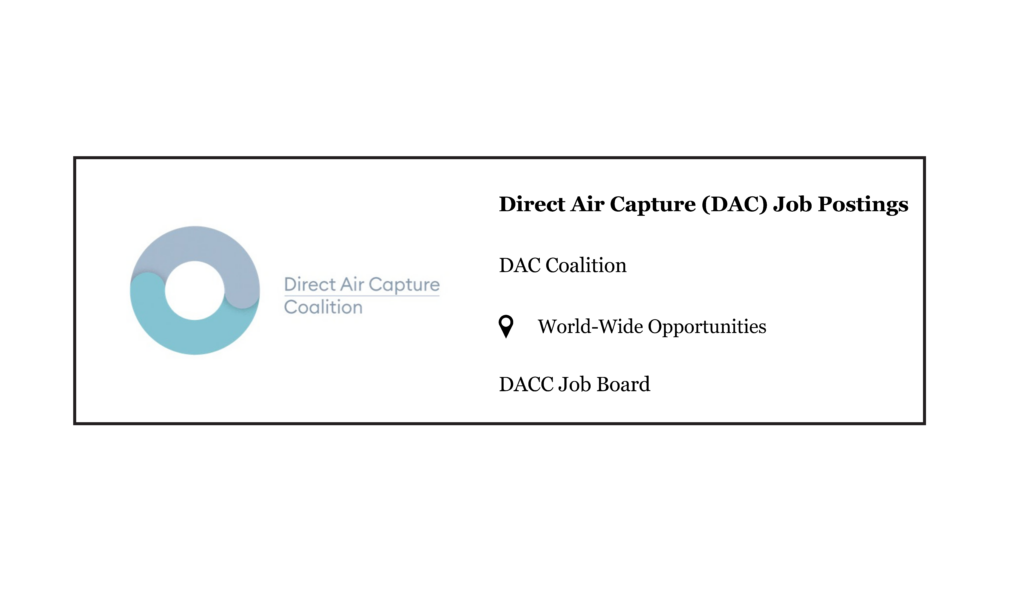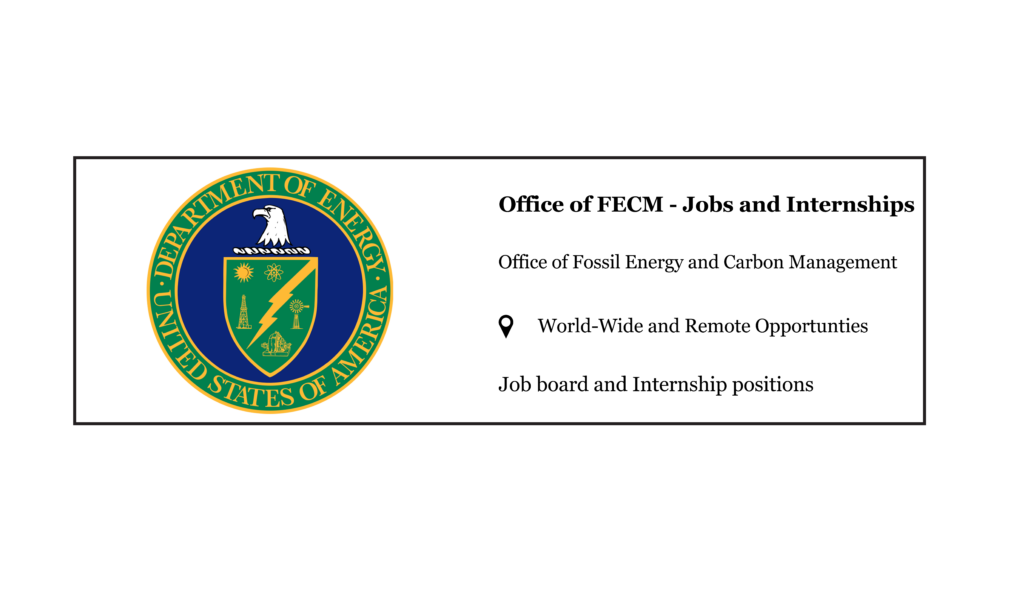Career Opportunities
Unlock Your Career Potential: Powering the Sustainable Future with CCUS!
Other job opportunities
Department of Energy – Office of Energy Efficiency and Renewable Energy – Headquarters. More information: https://www.usajobs.gov/job/752117900
CCUS jobs description
CCUS (Carbon Capture, Utilization, and Storage) jobs are positions within the field of environmental and sustainable technology focused on reducing greenhouse gas emissions, particularly carbon dioxide (CO2), and mitigating climate change. These jobs are critical in the effort to transition to a more sustainable and carbon-neutral economy. Here’s an overview of the types of roles and responsibilities associated with CCUS jobs:
- Carbon Capture Specialists: These professionals work on developing and implementing technologies to capture CO2 emissions from various sources, such as industrial processes, power plants, and even directly from the atmosphere. They may design and optimize capture systems, assess their efficiency, and ensure compliance with environmental regulations.
- CO2 Utilization Experts: CCUS also involves finding productive uses for captured CO2. This may include converting CO2 into valuable products, such as chemicals, fuels, or building materials. Jobs in this category involve research, process development, and innovation in utilizing CO2 as a resource.
- Carbon Storage Engineers: These experts focus on the safe and secure underground storage of captured CO2, typically in geological formations such as depleted oil and gas reservoirs or saline aquifers. They are responsible for assessing potential storage sites, ensuring regulatory compliance, and monitoring long-term storage integrity.
- Environmental Engineers: Environmental engineers in CCUS jobs assess the environmental impact of carbon capture, utilization, and storage projects. They develop strategies to minimize any potential risks and ensure that these projects meet sustainability and safety standards.
- Policy Analysts and Advocates: Professionals in this category work on advocating for and shaping policies related to CCUS. They may work for government agencies, non-profit organizations, or private companies to influence regulations, secure funding, and promote the adoption of CCUS technologies.
- Research Scientists: Many CCUS advancements come from scientific research. Research scientists investigate new materials, technologies, and processes to improve the efficiency and effectiveness of carbon capture, utilization, and storage methods.
- Project Managers: CCUS projects often involve significant planning and execution. Project managers oversee the implementation of CCUS initiatives, ensuring that they are completed on time, within budget, and in compliance with regulatory requirements.
- Technicians and Operators: Skilled technicians and operators are crucial for the day-to-day operation and maintenance of carbon capture and storage facilities. They ensure that equipment functions properly and that safety protocols are followed.
- Geologists and Geophysicists: Professionals in these roles help identify suitable geological formations for CO2 storage. They use their expertise to assess the subsurface characteristics and potential risks associated with storage sites.
- Economic Analysts: These analysts evaluate the economic feasibility and financial viability of CCUS projects. They assess the costs and benefits, including potential revenue streams from CO2 utilization.





